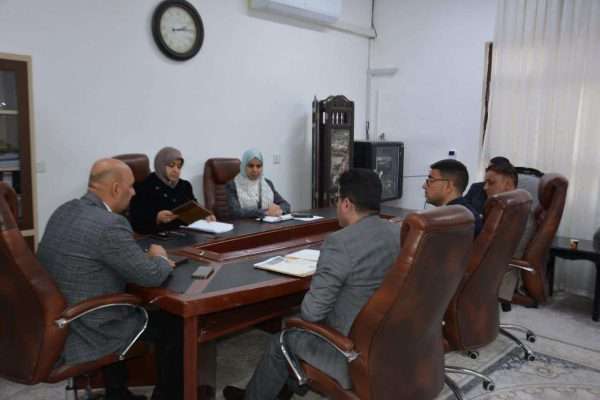Equality and Diversity Committee: EDC

Committee for Equality, Diversity, and Inclusion
The EDI (Equality, Diversity, and Inclusion) Committee at the University of Kerbala is presumably tasked with promoting and ensuring equality, diversity, and inclusion within the university setting.
These committees are commonly found in academic institutions around the world. They are essential in nurturing a welcoming and supportive environment for all students, faculty, and staff, regardless of their background, identity, or personal attributes. The responsibilities of the EDI Committee may involve formulating and executing policies and initiatives to tackle issues related to diversity and inclusion. Additionally, they organize events and workshops to increase awareness and foster understanding, provide support and resources to underrepresented groups, and monitor advancements toward achieving diversity and inclusion targets.
In Iraq, like many other countries, universities understand the importance of creating an inclusive setting where people from diverse backgrounds feel valued and respected, with equal academic and professional achievement opportunities.
The committee aims to
- Assess equality and diversity within its membership, compare it with the broader sector, identify potential issues, and devise activities to resolve them.
- Make the organization more inclusive and attractive to individuals from all walks of life.
- Foster a culture of openness and transparency in Resolution’s work.
- Engage a broader and more diverse group in Resolution’s activities.
Structure of the Committee
The Committee is composed of the following members:
- A Presiding Officer, who shall be a senior female faculty member (with a rank of at least Professor) employed at a high level, nominated by the Vice Chancellor to lead the committee.
- Two faculty members and two non-teaching staff appointed by the Vice Chancellor, ideally individuals with a strong commitment to women’s rights, prior experience in social work, or legal knowledge.
- Three student representatives are included when student perspectives are required for specific issues.
- One external representative from a non-governmental organization or association focused on women’s issues or an expert familiar with discrimination-related challenges.
- The Director of Student Counseling, who serves as the Member Secretary.
Functions and Duties of the Committee
The Committee is responsible for the following key functions:
- Designing and implementing a dynamic governance system to promote equality, diversity, and inclusion within the campus environment.
- Performing periodic audits to assess the accountability and efficacy of strategies designed to foster equality, diversity, and inclusion while analyzing and addressing any identified shortcomings.
- Evaluating the progress and implementation of existing policies to ensure they meet institutional objectives for inclusivity and fairness.
- Formulating customized policies and guidelines to uphold equality, diversity, and inclusion principles and monitoring their practical implementation.
- Resolving grievances stemming from inequalities based on caste, creed, race, gender, or disability, ensuring equitable and timely redressal.



























































